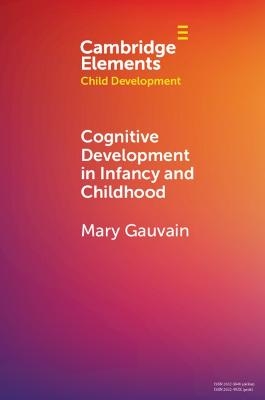
Cognitive Development in Infancy and Childhood
Seiten
2022
Cambridge University Press (Verlag)
978-1-108-95812-7 (ISBN)
Cambridge University Press (Verlag)
978-1-108-95812-7 (ISBN)
This Element describes cognitive development in infancy and childhood, a period of tremendous cognitive change. Children are born with a brain and neural system that are tuned to the people around them, who, in turn, care for children and provide the foundation for cognitive growth.
This Element describes the main theories that guide contemporary research in cognitive development along with research discoveries in several important cognitive abilities: attention, language, social cognition, memory, metacognition and executive function, and problem solving and reasoning. Biological and social contributions are considered side-by-side, and cultural contributions are highlighted. As children participate in social interactions and learn to use cultural symbols and tools to organize and support their thinking, the behaviors and understandings of the social community and the culture more broadly become an integral part of children's thoughts and actions. Culture, the natural ecological setting or habitat of human beings, plays a significant role by providing support and direction for cognitive development. Without the capacity to learn socially, human cognition would be markedly different from what it is today.
This Element describes the main theories that guide contemporary research in cognitive development along with research discoveries in several important cognitive abilities: attention, language, social cognition, memory, metacognition and executive function, and problem solving and reasoning. Biological and social contributions are considered side-by-side, and cultural contributions are highlighted. As children participate in social interactions and learn to use cultural symbols and tools to organize and support their thinking, the behaviors and understandings of the social community and the culture more broadly become an integral part of children's thoughts and actions. Culture, the natural ecological setting or habitat of human beings, plays a significant role by providing support and direction for cognitive development. Without the capacity to learn socially, human cognition would be markedly different from what it is today.
1. Introduction; 2. Cognitive development: Coming to understand and act in the world; 3. Processes and mechanisms of cognitive development; 4. Acquiring knowledge and connecting with the social world; 5. Developing and using the cognitive system; 6. Conclusion.
| Erscheinungsdatum | 02.08.2022 |
|---|---|
| Reihe/Serie | Elements in Child Development |
| Zusatzinfo | Worked examples or Exercises |
| Verlagsort | Cambridge |
| Sprache | englisch |
| Maße | 151 x 229 mm |
| Gewicht | 140 g |
| Themenwelt | Geisteswissenschaften ► Psychologie ► Allgemeine Psychologie |
| Geisteswissenschaften ► Psychologie ► Entwicklungspsychologie | |
| Geisteswissenschaften ► Psychologie ► Verhaltenstherapie | |
| ISBN-10 | 1-108-95812-5 / 1108958125 |
| ISBN-13 | 978-1-108-95812-7 / 9781108958127 |
| Zustand | Neuware |
| Informationen gemäß Produktsicherheitsverordnung (GPSR) | |
| Haben Sie eine Frage zum Produkt? |
Mehr entdecken
aus dem Bereich
aus dem Bereich
Techniken der Verhaltenstherapie
Buch (2024)
Julius Beltz GmbH & Co. KG (Verlag)
35,00 €


